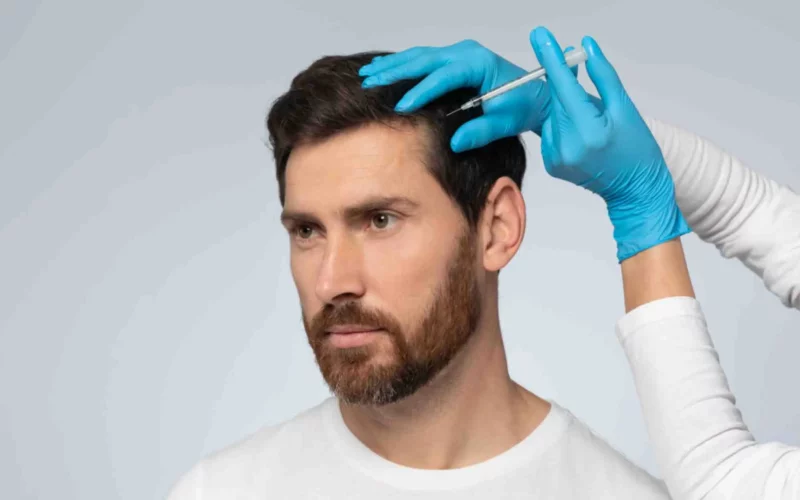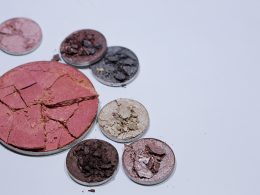Introduction
Hair loss can be a challenging experience, but with the right treatment, it’s possible to restore both your hair and your confidence. Whether you’re considering hair transplants, PRP therapy, or other restoration options, the key to success lies in choosing the right clinic. With so many hair restoration clinics available, it can be overwhelming to know where to start. In this article, we’ll walk you through everything you need to consider when selecting the right clinic for your hair restoration needs. From reputation to treatment options, we’ll help ensure you make an informed decision that will lead to the best possible results.
Why Choosing the Right Clinic Matters

The success of your hair restoration journey depends largely on the clinic you choose. A reputable clinic with experienced specialists can make all the difference between a satisfying outcome and disappointing results. Not only is it about the skill of the doctor, but it’s also about the technology they use, the clinic’s approach to patient care, and how well they tailor treatments to meet your specific needs. When selecting a clinic, it’s crucial to consider the following factors to ensure a safe, effective, and successful hair restoration procedure.
Choosing the Right Hair Restoration Clinic: What You Need to Know

1. Reputation and Reviews
When choosing a hair restoration clinic, one of the first things to check is its reputation. Word of mouth, online reviews, and patient testimonials can give you a good sense of the clinic’s quality and results. Look for reviews on independent websites and forums where people share their real experiences. Positive feedback from previous patients is a strong indicator that a clinic is trustworthy and provides good results.
Additionally, ask for before-and-after photos of previous patients. Many clinics will showcase their success stories, and these images can give you a clear idea of what to expect in terms of hair density and natural-looking results.
2. Qualifications and Experience of Specialists
The qualifications and experience of the doctors and specialists at the clinic are crucial. Hair restoration is a delicate procedure that requires advanced medical expertise. Ensure that the clinic is staffed by certified professionals with specialized training in hair restoration. Look for doctors who are board-certified in dermatology or plastic surgery, and who have specific experience in performing hair restoration treatments.
A skilled and experienced specialist will not only understand the latest techniques but will also be able to assess your hair loss pattern and provide you with the best treatment options based on your unique situation.
3. Treatment Options Available
Different patients have different needs, and the best hair restoration clinic will offer a range of treatment options to suit those needs. Some of the most common treatments include:
- Hair Transplants: This is the most well-known method, and involves moving healthy hair follicles from one part of your scalp to the thinning or bald areas. There are two main techniques: Follicular Unit Extraction (FUE) and Follicular Unit Transplantation (FUT). Make sure the clinic is proficient in both techniques and can help you decide which one is best for you.
- Platelet-Rich Plasma (PRP) Therapy: This treatment involves drawing your own blood, processing it to concentrate platelets, and injecting it into the scalp to stimulate hair growth. It’s often used in conjunction with other treatments to enhance results.
- Laser Therapy: Low-level laser therapy (LLLT) uses light to stimulate hair growth and improve the health of hair follicles.
- Medications: Some clinics offer medications like minoxidil or finasteride to help with hair loss.
A good clinic will assess your individual condition and offer a combination of treatments that will work best for your specific case.
4. Technology and Equipment
Hair restoration techniques and technology are constantly evolving. A modern clinic should have access to the latest equipment and technology to deliver the most effective results. For example, FUE hair transplants have become increasingly popular due to their minimally invasive nature, and some clinics may use advanced robotic systems to ensure precision during the procedure.
Ask about the technology and equipment the clinic uses. For example, if you are interested in FUE hair transplants, inquire whether they use automated tools or advanced techniques that reduce recovery time and improve hair follicle survival rates.
5. Consultation and Customization
A consultation is an essential part of the hair restoration process. During this initial visit, a reputable clinic should offer a thorough consultation that includes a hair and scalp examination, a discussion of your medical history, and an explanation of all available treatment options.
A quality clinic will customize the treatment plan to meet your specific needs rather than offering a one-size-fits-all approach. They should explain the process clearly, manage your expectations regarding the results, and give you a realistic timeframe for recovery and growth.
During your consultation, take note of how comfortable and well-informed you feel. A good clinic will answer all of your questions patiently and make sure you understand every aspect of the procedure before you make any decisions.
6. Cost and Financing Options
Hair restoration can be a significant investment, so it’s important to consider the cost of the procedures and what is included in the price. Be wary of clinics that offer exceptionally low prices, as this may be a red flag for subpar treatments or less experienced specialists. On the other hand, expensive clinics don’t always guarantee the best results either. It’s important to find a clinic that offers a fair price for the quality of care and results.
Additionally, many clinics offer financing options or payment plans to make the cost more manageable. Ensure you understand the full price breakdown and what is covered in the treatment costs, including follow-up visits, medications, or any post-surgery care.
7. Aftercare and Support
The success of your hair restoration procedure doesn’t end when you leave the clinic. Aftercare is a vital part of the process, and a reputable clinic will offer ongoing support and guidance. This includes detailed instructions on how to care for your scalp after surgery, medications to help promote healing, and follow-up appointments to track your progress.
A clinic that provides excellent aftercare will also be available to answer any questions or concerns that may arise after the procedure, ensuring you have the best possible experience and outcome.
8. Location and Convenience
While it’s important to prioritize the clinic’s reputation and quality of care, the location can also play a role in your decision. A clinic that’s located far from your home may require extensive travel for consultations and follow-up visits, which can add to your overall expenses and inconvenience.
Choose a clinic that is conveniently located, but don’t let the location be the only factor in your decision. Ultimately, quality and results should be your top priorities.
Conclusion
Choosing the right hair restoration clinic is essential for achieving the best results and ensuring a smooth, successful hair restoration journey. Start by researching the clinic’s reputation, the qualifications of the specialists, and the treatment options available. Pay attention to the technology used, the consultation process, and aftercare support. Cost is important, but the clinic’s ability to provide personalized care and long-term results should be your main focus.
By carefully considering these factors, you can feel confident that you’re making an informed decision and selecting a clinic that will help you restore not just your hair, but your confidence too. With the right clinic, your hair restoration journey can be a life-changing experience.












